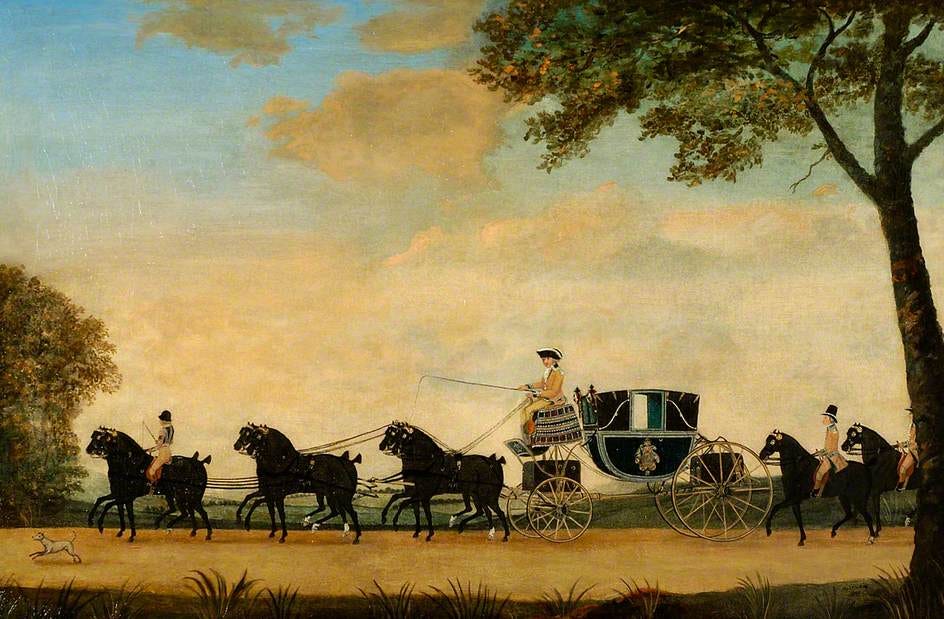“Whether you like the people or not, don’t by your noble sincerity and plain dealing make yourself enemies. You are in the world now, you know.”
Dear friends,
After the excitement of Clarissa taking flight with Lovelace, the novel’s pace is beginning to settle down again and its focus now lies with her much darker emotional manipulation by Lovelace. Hindsight is a wonderful thing and the girls have expended much time and effort trying to figure out whether the Harlowe family would really have relented if Clarissa had stayed at home. I’m siding with Anna, Clarissa would probably be Mrs Solmes by now. Even so, Clarissa’s humbled situation has led her to believe that children, “should not presume (no, not with the best and purest intentions) to follow their own conceits.” Richardson’s own view perhaps?
The last fortnight has seen two shocking letters arrive from Aunt Hervey and sister Arabella claiming, “nothing you ask will be complied with.” Clarissa’s emotional collapse and Lovelace’s comfort stoked some warm feelings, and she has begun letting him in by degrees. If only she knew the true extent of his plot — which includes plans to use her grief against her, to increase her hopes only for them to be dashed. She has already been tricked into playing along with a rumour that the pair are already married, with Lovelace gathering witnesses in case she decides to “fly.” It’s becoming clear just how fragile Lovelace’s ego is — he needs Clarissa to be in awe of him, utterly devoted. And he seems dangerously inclined to revenge if she cannot.
As for Arabella’s letter, she could hardly have said anything worse than, “it is wished you may be seen a beggar along London Streets!” Clarissa knows this is the harsh reality for many women who have lost their virtue and reputations. Lovelace, of course, doesn’t think this happens to girls of Clarissa’s class and instead claims she would merely be humbled into domestic obligations as the wife of a second-rate match. “I am more in his power than ever,” writes Clarissa. After meeting Lovelace’s rakish friends and receiving a damning letter from Morden, she finally accepts she must now marry this man of extremely poor morals.
Meanwhile, Lovelace himself is going cold on the idea of marriage. Not only is he beginning to question her manners, but Clarissa’s emotional outbursts make her a potentially disastrous wife. Who wants to be married to someone so “vapourish,” who is continually fainting away in nervous attacks? Living unwed is much more exciting isn’t it? The constant threat of parting keeping the passion alive? Lovelace plans to gauge Clarissa’s openness to such a relationship.
And so arrive the wonderful letters of Belford, urging Lovelace to abandon his schemes. Belford openly admits they are men, “who consider all those of the fair sex as fair prize, whom we can obtain power over.” But he also recognises the strength of Clarissa’s mind, placing her above marriage and domesticity. Even more welcome to our ears, he writes:
“I see not when men are so frail without importunity, that so much should be expected from women, daughters of the same fathers and mothers, and made up of the same brittle compounds (education all the difference), nor where the triumph is in subduing them.”
Belford writes of fair and unfair seduction, firmly believing Lovelace has set the scale too far in his own favour: “the trial is not a fair trial.” Astonishingly, all the lads - our ‘varlets’ - agree. Indeed, Lovelace’s ideas about what constitutes consent are so far from our own that his reasoning can seem unfathomable. Clarissa is already realising that, “one concession is but the prelude to another with them,” as Lovelace keeps hammering on her boundaries until they can do nothing but collapse. Thank goodness for Anna, whose shrewdness and consoling words are Clarissa’s only comfort.
What do you think of Belford and the varlets? And what of cousin Morden’s letter?
If you would like to follow our read-along please subscribe below, visit your Substack subscription settings and make sure Letters & Libations is checked. Please get in touch if you would like to be added to the Instagram chat group.
Featured image is The Marquess of Queensberry's Coach by John Cordery (1765-1825) courtesy of The National Horseracing Museum




